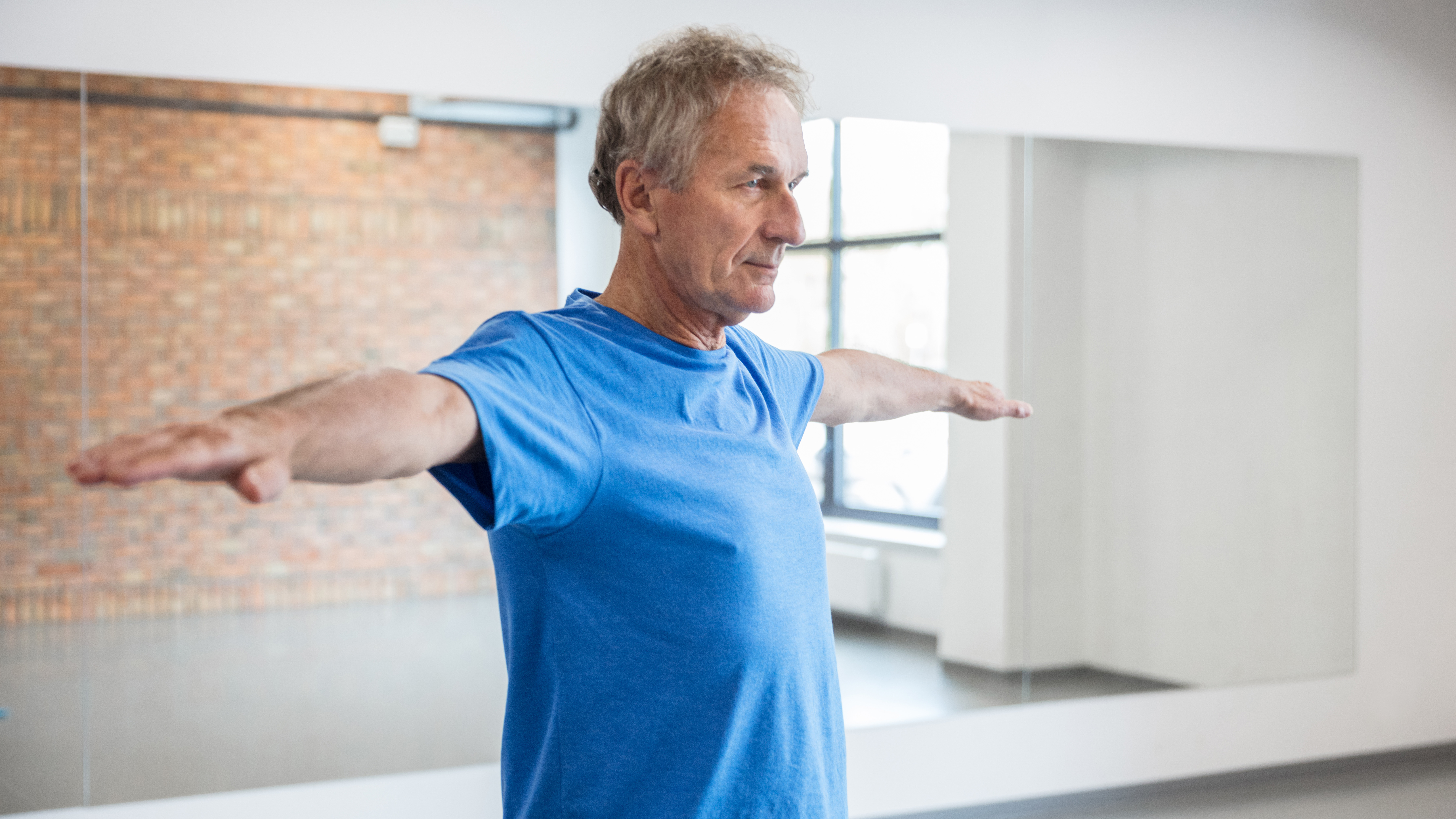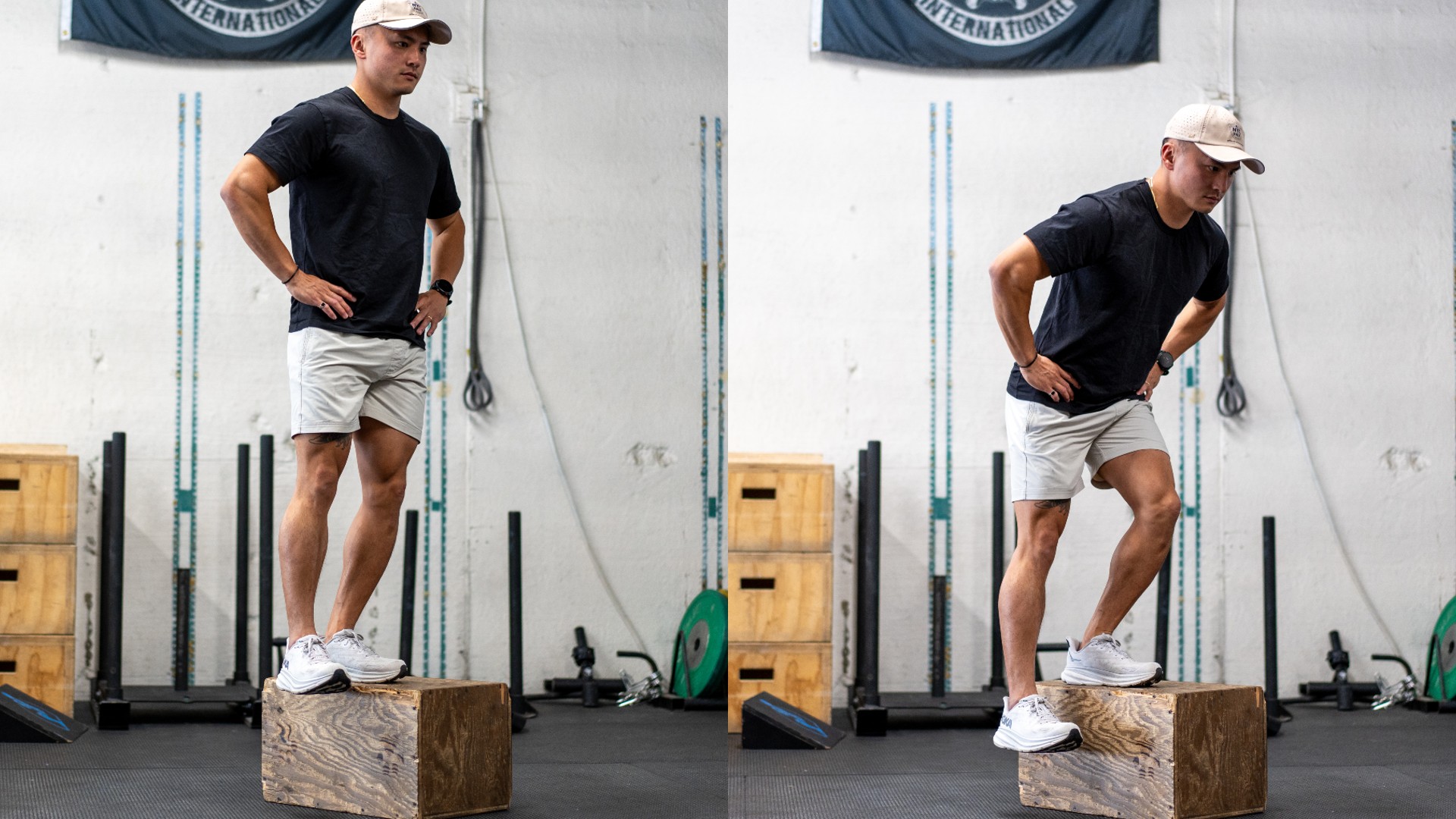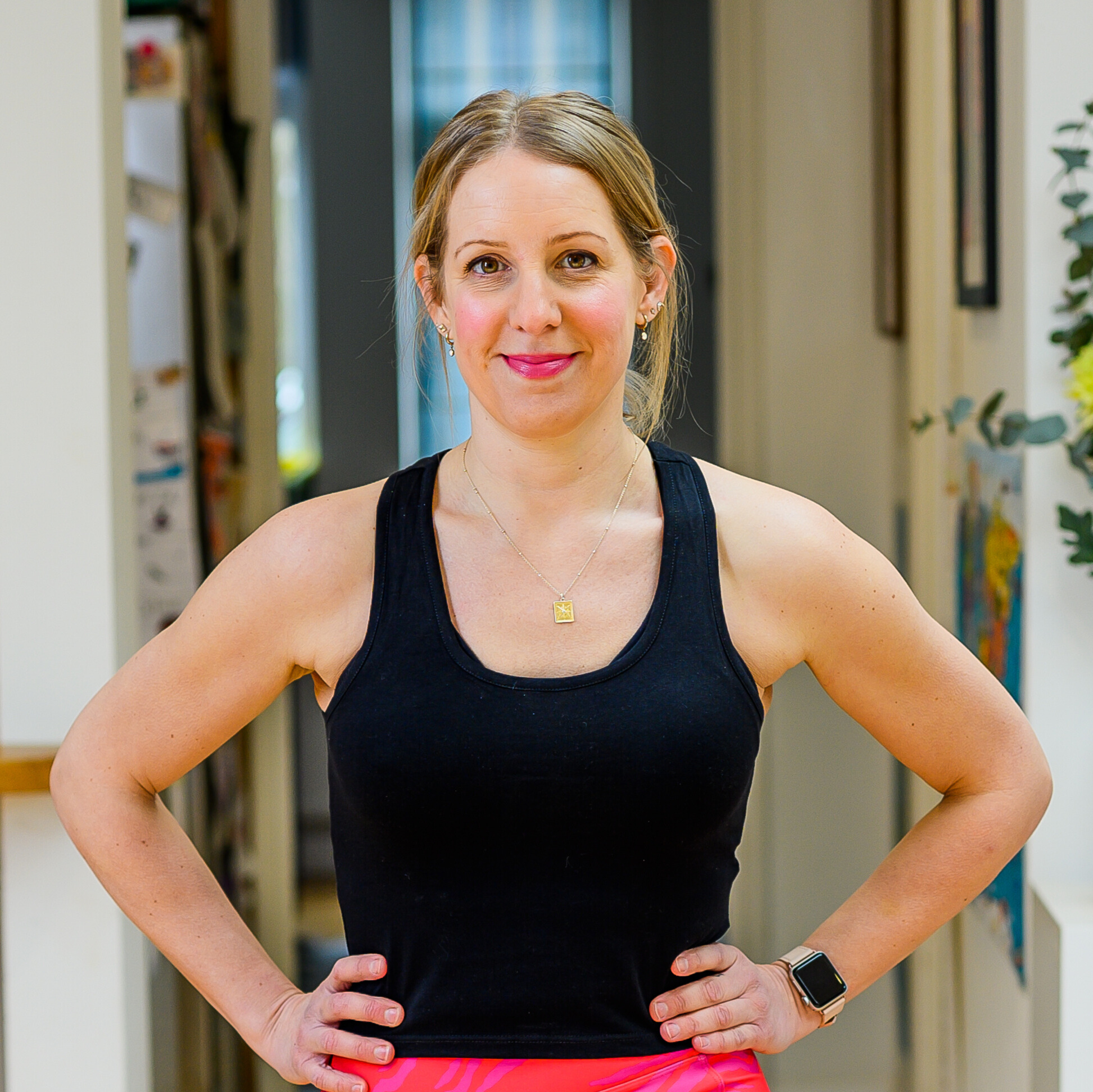You don't need any equipment to improve your balance, just this gentle routine that takes less than 10 minutes
The quick and easy session can be practiced anywhere


Balance naturally declines with age but there are ways to combat this. Doing a mix of strength and flexibility training will keep your muscles functioning at their best but dedicated balance training can also help.
Shelly Fowler, a certified trainer specializing in exercise and brain health for older adults, recently shared a nine-move bodyweight balance workout you can do in under ten minutes.
She told her 1.8 million YouTube subscribers: "Balance exercises are not just about physical prowess but also cognitive engagement. When practicing balance exercises, the brain constantly communicates with muscles to maintain equilibrium. This strengthens neuromuscular pathways, keeping the brain active and alert."
Scroll down to see the routine.
How to do the nine-minute balance training routine
There are nine exercises to practice, which are listed below. Fowler recommends doing each exercise for 45 seconds with 15 seconds of recovery time. Watch the video above for demonstrations on how to do them.
- Knee raise
- Left knee rotation
- Right knee rotation
- Head turn while standing on left leg
- Head turn while standing on right leg
- Left torso twist
- Right torso twist
- Paddle arms with left leg in front
- Paddle arms with right arm in front
Other ways to improve balance
One of the best ways to improve balance is through functional strength training. Single-leg exercises can be particularly helpful, according to physical therapist Dr Andy Fata-Chan, founder of Moment Physical Therapy and Performance.
“A lot of everyday activities happen on one leg. Whether it's running, walking, coming up and down the stairs—it's happening on one leg. If you lose that ability, that lets us know that your function is declining.”
Start your week with achievable workout ideas, health tips and wellbeing advice in your inbox.
If you can’t balance on one leg, he recommends doing a lateral step-down exercise.
How to do a lateral step-down

- Find an elevated surface and stand with one foot on the surface and the other hovering level.
- Bend the knee of your standing leg until the heel of the foot on the other side touches the floor, then push back up again. Add weight to make this more challenging or lower the level of the surface to make it easier.
Another way to maintain balance is to work on your core, a collection of mid-body muscles that help with postural control. You can increase core strength with moves like the plank or practicing wobble board exercises.
Maddy Biddulph is a journalist specializing in fitness, health and wellbeing content, with 26 years in consumer media working as a writer and editor for some of the bestselling newspapers, magazines and websites in the US and UK, including Marie Claire, The Sunday Times and Women’s Health UK.
She is a CIMPSA-certified PT and works one-on-one with clients, as well as running Circuits Club classes which mixes cardio and strength training and chair-based exercise classes for seniors.

